By Ariana Rawls Fine / Photographs by Healing Meals Community Project
When facing an illness or supporting a family member experiencing a health crisis, preparing nutritious meals can feel overwhelming. It is trying when you are arriving home after treatments, taking care of a loved one between treatments, or experiencing other times of physical and/or mental health crisis. “Nutrient-rich foods help support immune system function, strength and vitality, the body’s reactions to stress, and emotional and overall health,” says Sarah Leathers, who graduated from The Institute for Integrative Nutrition as a certified health and wellness coach.
In late 2015, Leathers joined the affiliate training class at Ceres Community Project, a national network of organizations focused on bringing nutrient-rich food to those coping with health issues, creating healthier communities, and empowering youth and adults through community service. By the spring of 2016, Leathers had founded Healing Meals Community Project (HMCP). She teamed up with Ellen Palmer, Emily Safino and Ellen Deutsch to launch as a Ceres Community Project affiliate to fulfill a need in the Hartford area and engage youth as key participants in the mission.
For individuals and families coping with a health crisis in the Greater Hartford area, HMCP prepares and delivers healthy and organic fresh meals. Working with adult mentors and an executive chef, youth volunteers prepare the meals. The health issues can include being in treatment for cancer, surgeries, chronic conditions or other acute health challenges. It is not for those receiving hospice care.
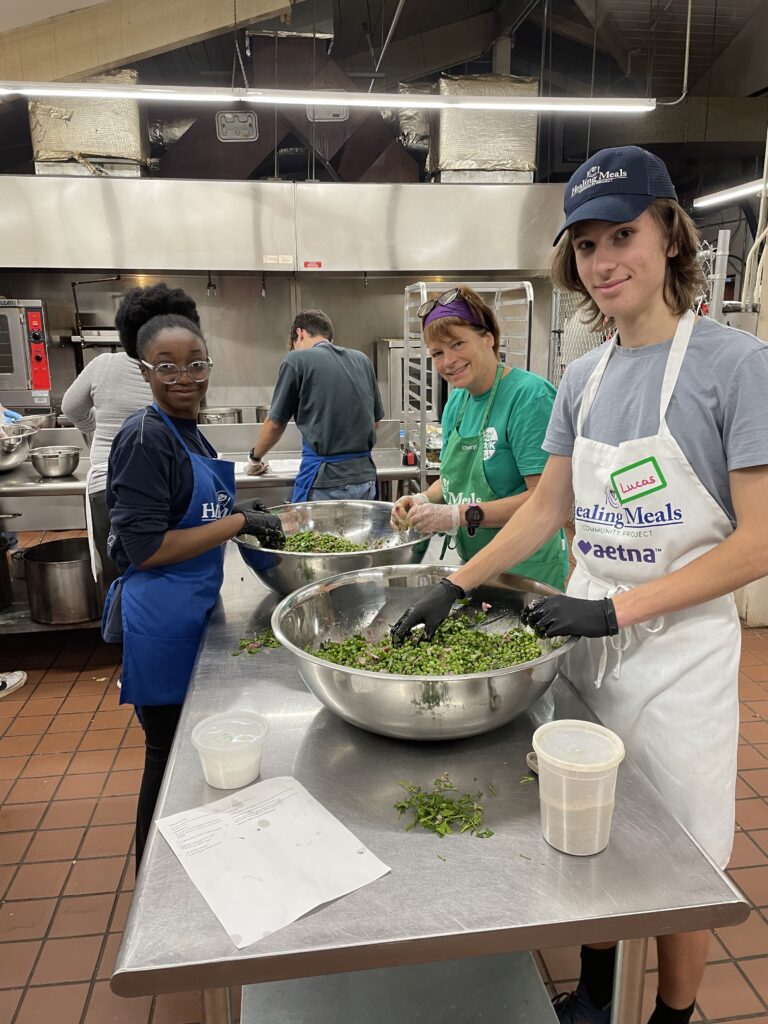
Serving Up Health
HMCP’s focus on whole, organic and locally grown foods exemplifies the “food is medicine” motto, including organic, pasture-raised meats as well as wild-caught and sustainably harvested seafood. The program is currently offered for a three-month period for clients. In addition, the organization’s Nutrition Education Wellness workbook series enables individuals and their families to learn more about nutrition and changing habits as they continue along their wellness journey.
HMCP meals are offered at a sliding scale price. The organization’s volunteer Delivery Angels deliver meals for up to four family members directly to each client’s home on a weekly basis. They include six meals for each individual: four entrees, one soup and salad, and one quart of Healing Meals Nourishing Broth.
HMCP has prepared and delivered more than 184,000 meals to more than 2,600 people since it started in March 2016. It serves more than 75 towns in Connecticut. In 2024, HMCP provided volunteer opportunities for more than 200 youth and 280 adults. The Youth Development program collaborates with the Healthy Meals delivery program to offer youth mentoring, hands-on learning and volunteer time.
In 2023, individuals volunteered 13,000 hours of service preparing 33,000 meals to 349 clients enrolled in the meal program and 203 family members. Last year, 3,050 total deliveries were made. Eighty percent of the organization’s clients are considered low-income and receive either low- or no-cost meals.
The organization recently collaborated with the City of Hartford and the Hispanic Council on a pilot with over 30 women to show the power of nutrition, support and education in relation to pre-term births with food-insecure pregnant mothers. During the program, 26 babies were born with 88% being full term.
In the last few years, HMCP has teamed up with Hartford Hospital and Mental Health CT on other studies as well.
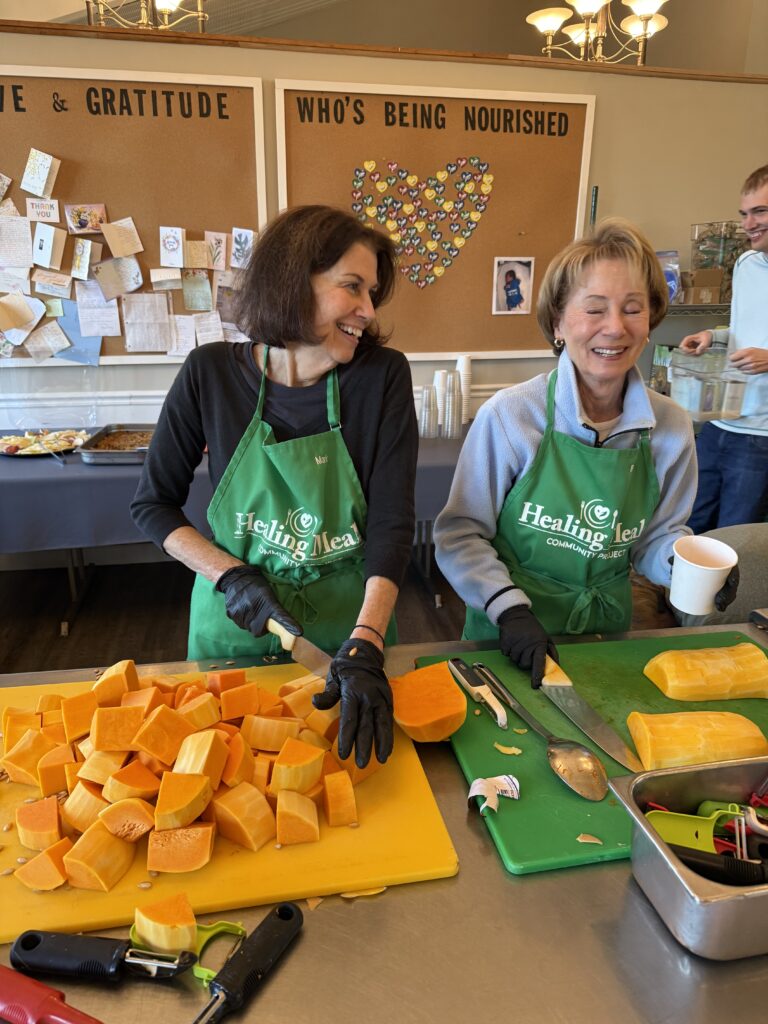
Creating Healthier Choices for Their Future
“Gluten, dairy, corn and even soy can be inflammatory for many people,” Leathers explains. HMCP wants to give clients the cleanest food possible, so most foods are free of ingredients that include them. The hope is that clients will see how much better they feel after removing inflammatory components from their diet. That is part of the reason why families are served for 12 weeks; they are changing their palettes to start to understand and feel the difference. There is an extended meal plan to continue for up to 24 weeks.
“We are also building awareness around reading a label when we deliver our foods,” says Leathers about educating their clients on food options. “When you are eating healthier food, you are more satiated. If we can make a difference while they are crisis, they will still move forward with even a few healthier choices—even if it is cutting down on soda and drinking more water.”
An adult volunteer Client Care Team member connects and stays in contact with the client during their time with the program to offer connection, compassion and education.
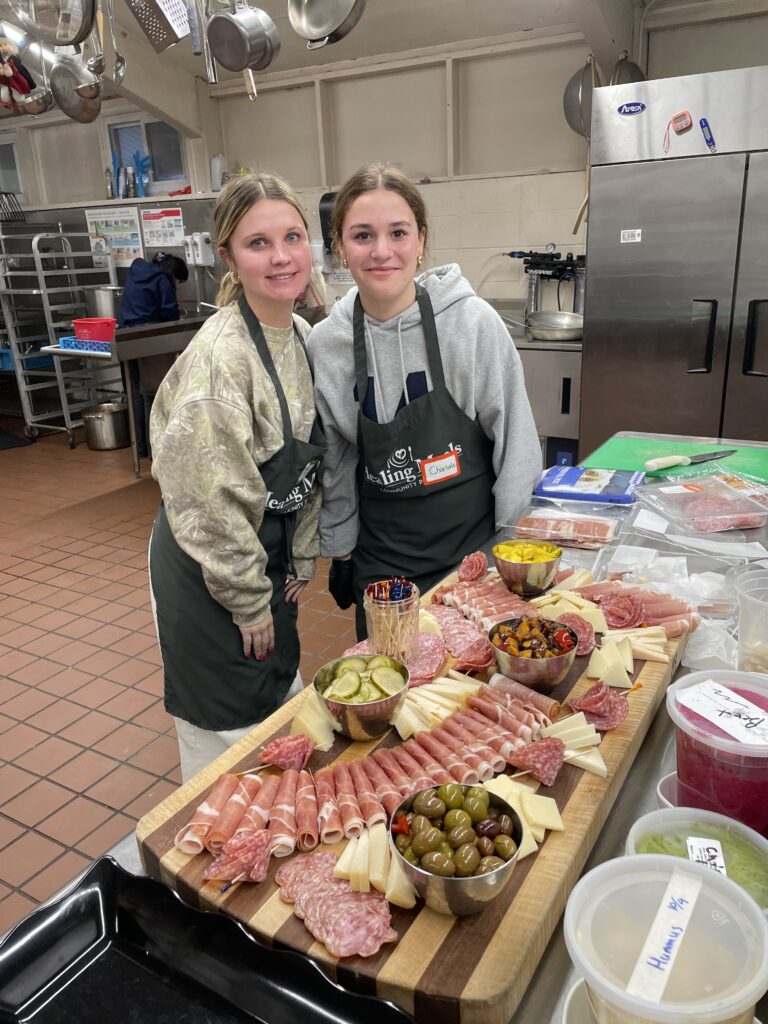
Enriching the Lives of Youth Volunteers
The youth volunteers learn about the needs of people in a health crisis and how food can make a difference from the executive chef.
“We see many kids really open up when they come to volunteer. They get their blue apron and are so proud of what they are doing; they are part of something,” Leathers elaborates. “The food is the avenue, the task, the project they are doing. They are themselves eating more fruits and vegetables. Almost all can now cook a meal from scratch. They feel more empowered when cooking a meal and learning to make healthier choices. There is a mental health crisis with our young people. Here, they find that they matter; one of our core values is to have them be seen.”
While they are learning about the culinary arts and healthier eating habits, the volunteers gain leadership and intergenerational relationship skills with adult volunteers. “In addition to preparing the meals, the youth write notes of encouragement to each client. They see that time is a gift,” Leathers says. When clients send back heart-felt thank you notes for changing their lives, the youth can see how they are not only affecting the families they are serving but also themselves and the community.
The aspect of having done something for someone else is powerful. “We often say that kids are ‘voluntold.’ We know that 95% of our youth volunteers will continue to come back; many of ours have volunteered 50-100 hours,” adds Leathers. “We provide a safe, joyful environment for the kids. I can say that this is the happiest place of my week.”
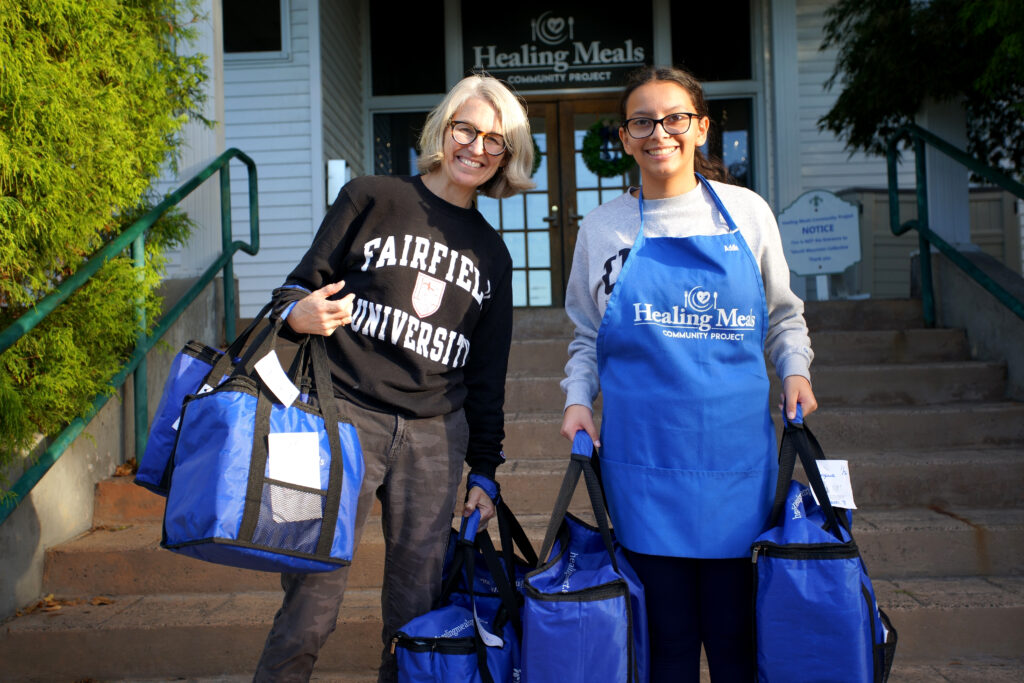
Filling a Community Need
Serving clients of all ages, races and socioeconomic levels, HMCP finds that nearly 75% of its clients are living in low-income households receiving HMCP meals at no cost while others who can afford more are asked to pay a modest amount. Clients are referred from hospitals, healthcare providers, social services and municipal departments as well as word-of-mouth referrals.
HMCP has grown in its outreach and funding from less than $90,000 in its first year in 2016 to over $1.03 million by the end of 2023. Nearly half of the funding comes from community and corporate donations, 27% from grants, 20% from fundraising efforts, and 6% from other sources.
“We are serving 40% more people today than we were a year ago. We didn’t budget for that. There is a need, and we need support. We don’t receive federal or state funding; money comes from individual donors, grants, nonprofits and corporate sponsorships.”
“You have to know when you are on the soccer field, in the grocery stores and in other places that families are benefiting from what you are doing. You just need to know what you do matters,” concludes Leathers about what drives her and the organization’s volunteers.
Learn more at healingmealsproject.org.



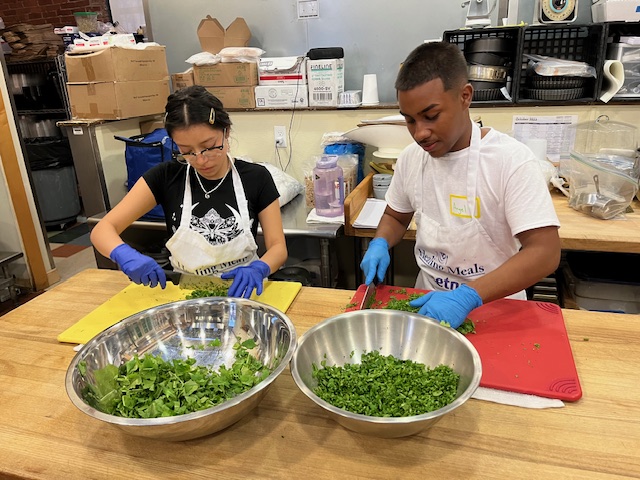



More Stories
Hospital for Special Care’s Ivan Lendl Adaptive Sports Camp
Over 50, Underestimated: The Grandfluencers Redefining Age on Social Media
Building Resilient Businesses: Strategies for Success